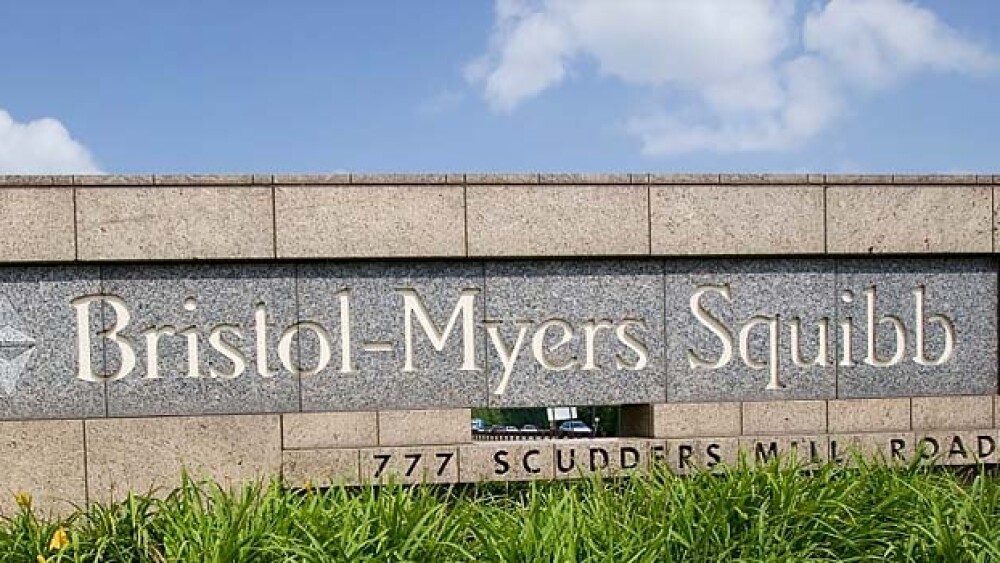The combination of Opdivo and Yervoy actually fared worse than placebo, according to the data presented at the conference.
In November, Bristol-Myers Squibb announced that its late-stage CheckMate 451 study did not meet is primary endpoint of overall survival. The trial paired the company’s top checkpoint inhibitor, Opdivo, with Yervoy, which targets the CTLA-4 protein receptor.
The two drugs are cornerstones of BMS’ oncology pipeline. In the Phase III CheckMate 451 trial, Opdivo nivolumab) and Yervoy (ipilimumab) were being paired as a maintenance therapy for patients with extensive-stage small cell lung cancer. The combination would be provided to patients following completion of first-line platinum-based chemotherapy. When the company announced the trial failure in the fall, no details were provided. Now though, details have come out at the European Lung Cancer Congress taking place in Geneva, Switzerland. And the details, first reported on The ASCO Post, are not good.
The vast majority of SCLC patients, 60 to 70 percent, are considered to have extensive disease issues by the time they are diagnosed. At that point, the disease has typically spread beyond a single lung. SCLC patients have typically responded to chemotherapy, but that response is often short, BMS said in its presentation. The focus of the study was to examine whether or not providing maintenance immunotherapy following successful chemotherapy would improve chances of overall survival.
According to a presentation at the Congress, the combination treatment fared worse than placebo. The results showed that after a nine-month follow up of patients, overall survival was not “significantly prolonged with combination immunotherapy” compared to placebo. Placebo patients had a 9.6-month overall survival rate compared to 9.2 months for the combination treatment, according to the data. When developing lung cancer treatments, overall survival is a key selling point.
According to the American Cancer Society, more than 228,000 Americans are expected to be diagnosed with lung cancer this year. About 84 percent will be diagnosed with non-small cell lung cancer, the most prevalent type. The rest will likely fall into small cell lung cancer. The five-year survival rate for patients diagnosed in the United States with any stage of lung cancer is estimated to be 18 percent.
In addition to the combination treatment results, the results showed that overall survival was not prolonged for Opdivo alone compared to placebo. However, the comparison was not formally tested due to statistical hierarchy.
Taofeek Owonikoko, Co-Chair of the Clinical and Translational Review Committee, Winship Cancer Institute of Emory University and a co-author of the study, said the findings in the CheckMate 451 trial were a big disappointment.”
“There was some indication that compared to placebo, it took longer for the cancer to progress in patients who received either combination immunotherapy or nivolumab alone. This was not the primary endpoint of the study, so we cannot make definitive conclusions, but it shows that this strategy could be promising, especially in patients who are responsive to immunotherapy. The challenge will be how to select and identify those patients since patients who began maintenance therapy sooner after completion of chemotherapy did appear to derive greater benefit,” Owonikoko said in a statement, according to the ASCO Post.





